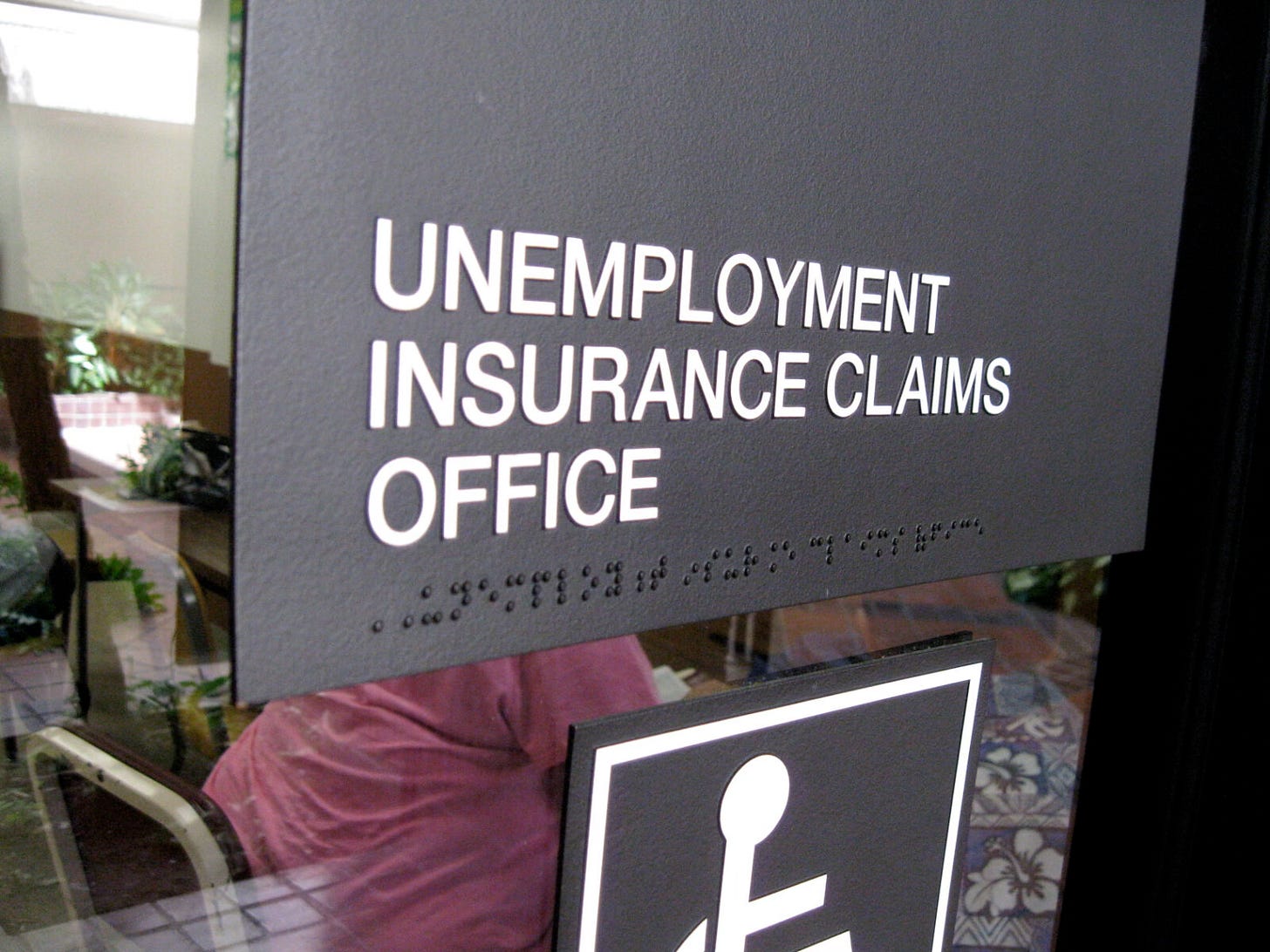A Healthy Future Requires Economic Justice
Health and wellness cannot be separated from access to stable employment, fair hiring processes, and economic conditions that allow people to meet basic needs without constant stress.
If you find value in this work, consider subscribing or upgrading to a paid subscription to support more of it. Your support helps keep this going and makes a real difference. Thank you for being here.
A friend recently asked me how I was holding up, considering that I’ve been unemployed for nearly seven months and the job market is horrible. I told her I was mostly fine because I’ve adopted a simple—but incredibly powerful—mindset: I’m only worrying about what I can control.
I can’t control the job market. I can’t control a hiring manager or an AI scanner’s decision. What I can do, however, is show up as the best candidate and the best version of myself. That mindset helps me stay grounded.
Most of the time.
The other half of it, I’ve found it challenging to explain to most people who are not looking for work in this current market why I haven’t found anything yet. (Thankfully, my friends and family are empathetic souls who have been incredibly easy to talk to during all this.) As of August, 7.5 million people are unemployed. The recent government layoffs during the ongoing shutdown and the massive cuts announced at large companies like Amazon, Target, and General Motors just this week suggest that the number is higher now. To make matters more complicated, the hiring rate is at its lowest point since the Great Recession. Millions of others and I are tailoring resumes for jobs we’re qualified or overqualified for and hearing nothing back. Even people using ChatGPT to spit out resumes for job blitzes—the one AI usage I don’t knock people for because the use is born out of desperation for stable income, not creative laziness—aren’t getting callbacks because, to keep up with the influx of applications, employers are using AI to manage the initial stages of the job process.
The Atlantic summed up the churn really well:
Still, a lot of job applicants never end up in a human-to-human process. The impossibility of getting to the interview stage spurs jobless workers to submit more applications, which pushes them to rely on ChatGPT to build their résumés and respond to screening prompts. …And so the cycle continues: The surge in same-same AI-authored applications prompts employers to use robot filters to manage the flow. Everyone ends up in Tinderized job-search hell.
Despite all of this, not being able to find something after applying to hundreds of jobs feels like a personal failure to me, despite my knowing that it’s a systemic one. Trying to accept my limited control over the situation isn’t easy for me, a high-achieving, first-in-her-family-to-do-this-thing, Type A career woman. I’m used to working hard, and it being enough. I’m used to my effort translating into almost immediate results. When it doesn’t, my instinct is to gnaw at myself and search for ways that I’m flawed or failing—an impulse I’ve detailed on here before.
This is a symptom of growing up American. Here, we are taught to internalize outcomes shaped by policy choices, economic shifts, and systems bigger than any single person. When the job market is hellish, everyone is expected to grab their bootstraps and start pulling until they break through the ceiling. So much pressure is placed on individuals to manage circumstances that are not of their own making, like not getting callbacks from jobs right now or being hit with an instant AI-generated rejection email.
Personal agency and structural forces collide when searching for work in a tough labor market. Although our culture insists that success results from mindset, discipline, and self-optimization, the current job market exposes the limits of individual effort, making the flaws of American individualism more obvious to more people.
All of this—motions broadly—is having a significant impact on our collective well-being.
More than half of U.S. workers report that job insecurity significantly affects their stress levels, indicating widespread psychological strain tied to work instability. Even more evidence connects that strain to worsening physical and mental health. Adults experiencing economic hardship related to unstable employment report poorer overall health, food insecurity, and financial stress. And this pattern extends beyond those who are job insecure. Volatile income and irregular schedules correlate with multiple chronic health conditions. The longer someone remains unemployed or stuck in unstable work, the more cumulative the health risks become.
Right now, we’re witnessing an active case study on why health, dignity, and opportunity must be collective priorities. A future where wellness is real will not be built through trying harder or relentless self-improvement. It will come from policies and workplaces that reduce precarity, protect workers, and make stability accessible and feasible. Only when political and socioeconomic structures promote the conditions for people to flourish can well-being move from a private burden to a shared reality.
So what does meaningful change look like here?
It involves shifting responsibility to the institutions and environments that shape our lives. That looks like employers offering stable schedules, living wages, and robust benefits. It means designing communities that make the healthy choice the easy one, with safe parks, reliable transit, and affordable groceries that are within reach. It requires social norms that celebrate interdependence rather than treating struggle as a personal failure, so conversations about needing help lead to support rather than shame. Policy must reinforce these shifts through stronger worker protections, investment in public health resources, and systems that track well-being as a measure of success.
Personal resilience matters, but true wellness emerges when the conditions around us allow everyone to thrive.





Needed this read. Couldn’t agree more. Thank you! 🙏🏾